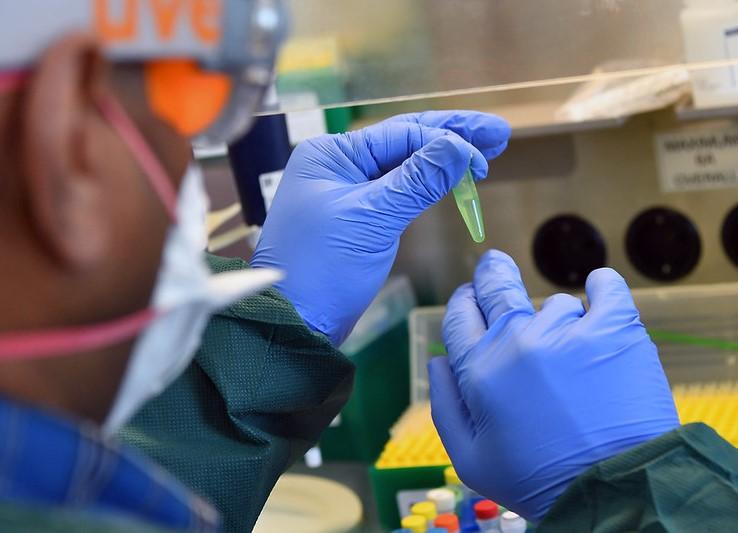A JAMA Internal Medicine research letter today finds that 18% of recovered COVID-19 patients test positive for SARS-CoV-2, the virus that causes COVID-19, but only 3% (1 of 32) carry replicating virus in their respiratory tract.
Italian researchers studied 176 recovered COVID-19 patients admitted for post-acute follow-up treatment at Fondazione Policlinico Universitario A. Gemelli IRCCS in Rome from Apr 21 to Jun 18. Patients had discontinued isolation according to current criteria—no fever for 3 consecutive days, improvement in symptoms, and two negative reverse transcriptase-polymerase chain reaction (RT-PCR) test results for the virus, 24 hours apart.
Nasal/oropharyngeal (NOS) swab samples from the patients were analyzed for total (genomic) and replicative (subgenomic) SARS-CoV-2 RNA using RT-PCR assays. Subgenomic RNA is not yet packaged into virions—the complete, infectious form of a virus—and is transcribed only in infected cells, indicating active infection and possible transmissibility. Serologic testing for immunoglobulin (Ig) A and IgG antibodies was also conducted as part of the follow-up study.
One patient shows evidence of RNA replication
Among the 176 patient NOS samples, 32 (18.2%) tested positive for genomic SARS-CoV-2 RNA, with viral loads ranging from 1.6 × 101 to 1.3 × 104 SARS-CoV2 RNA copies per milliliter.
The average time from diagnosis to follow-up in the SARS-CoV-2–positive patients was 48.6 days. Only one of the 32 positive samples (3.1%) had replicative, subgenomic SARS-CoV-2 RNA.
All but one of the 32 SARS-CoV-2–positive patients had a positive serology test at follow-up, as well as 139 of the remaining 144 patients. The patient who tested negative for SARS-CoV-2 antibodies was not the one with a positive test result for replicative SARS-CoV-2 RNA.
"This study highlights that many patients who recovered from COVID-19 may be still positive (albeit at lower levels) for SARS-CoV-2 RNA, but only a minority of the patients may carry a replicating SARS-CoV-2 in the respiratory tract," the authors write.
No widely available test currently exists for determining viral reproduction and infectiousness, highlighting the need for further studies to verify whether recovered patients who test positive for SARS-CoV-2 are able to transmit the virus, the authors note.
The problem with repeat PCR follow-up
Repeated testing for SARS-CoV-2 in recovered patients is complicated by highly sensitive RT-PCR testing that can detect nonviable remnants of the virus, leading to unnecessary quarantine and concerns about reinfection.
In an editorial in the same journal, Mitchell H. Katz, MD, of New York City Health and Hospitals, argues against routine, repeated PCR testing following recovery in light of PCR sensitivity and the uncertainty of infectiousness among those who continue to test positive for the virus.
"Reinfection with SARS-CoV-2 has been documented (based on demonstration of different genetic differences between the viruses infecting the person on the first and second episode) but is rare," Katz writes. "Until clinical laboratories have the capability to test for the reproductive capacity of coronavirus, interpretation of the epidemiologic significance of positive PCR results among recovered patients will remain challenging."
See also:
Aug 24 CIDRAP News story "COVID-19 tops 23 million cases as evidence builds for reinfection"




















